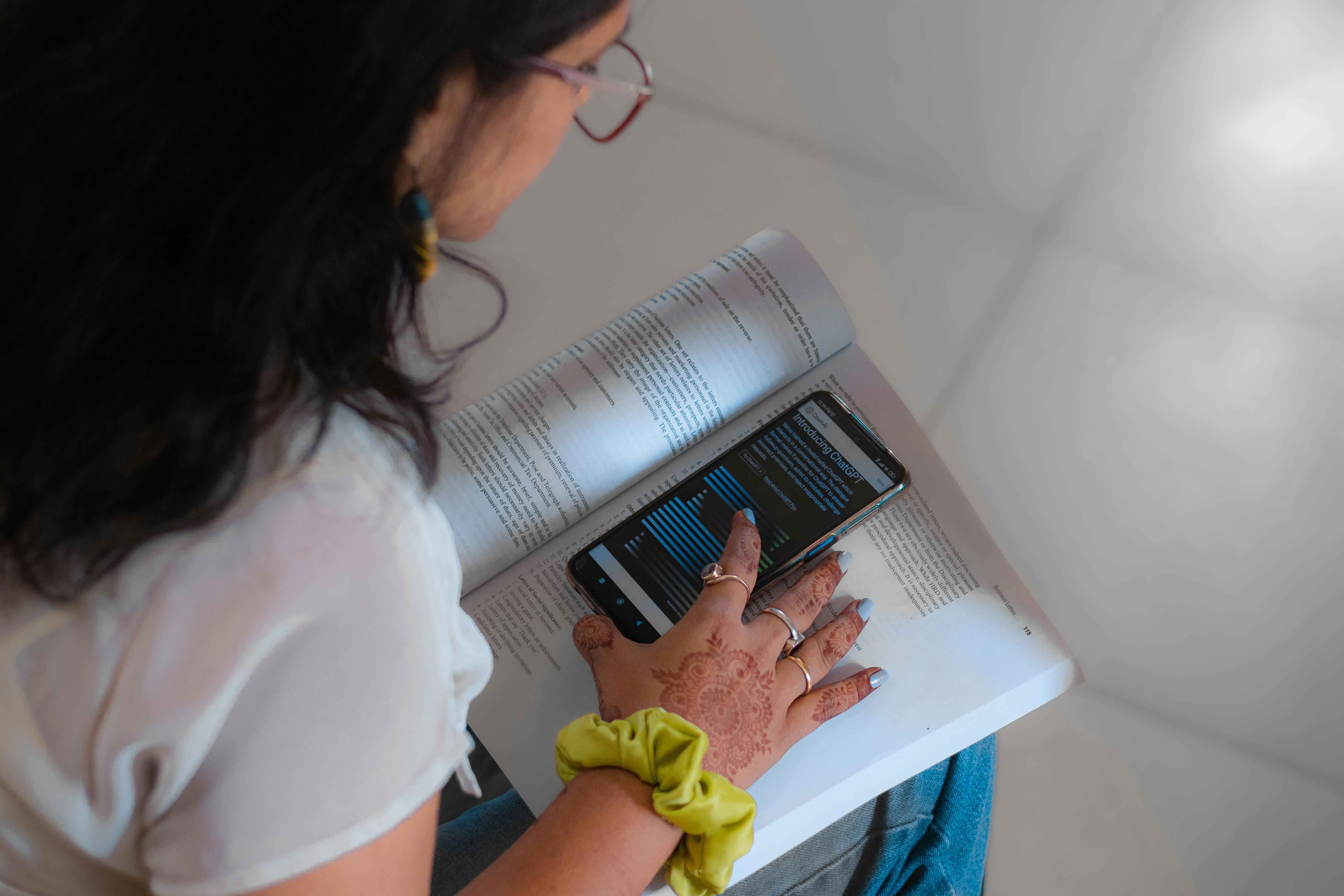
Projected Revenue Amplification: Giving Backlist Titles a Second Life
The stated goal, as author Kristen Painter noted, is not just reach, but revenue amplification. For the independent sector, an international market is the difference between a steady income and a sustainable career. A foreign translation is the ultimate “second life” for a title. A thriller that peaked two years ago in English can suddenly start generating recurring income streams in Spanish or German markets, effectively flattening the sales curve over a longer period.
Industry analysts suggest that high adoption rates for this feature could unlock billions in previously uncaptured revenue across the global digital book market. This money, channeled through increased unit sales, flows directly to the authors and, by extension, increases Amazon’s platform engagement and transactional revenue. The sheer volume potential is staggering, especially as more languages are integrated. Beyond the Debut: Backlist as the Engine of Growth
While a new release is exciting, the real financial power for self-published authors often lies in their backlist—the 80% of their catalog that generates residual income. Before Kindle Translate, marketing an older book internationally required a new, costly translation push. Now, authors can simply select a title and watch it appear on international storefronts. The potential economic mechanics look like this:
- Initial Reach: The translated title gains visibility in a new, less saturated market.
- KU Discovery: Readers in Spain or Germany discover the book via Kindle Unlimited, which generates micro-royalties.. Find out more about Kindle Translate free beta for self-published writers.
- Spillover Effect: Readers enjoying the translated version may seek out the author’s other titles, or even purchase the original English version if they are bilingual or learning the language.
- Sustained Income: The title generates passive income months or years after its original English release peaked.
This shift fundamentally revalues the backlist catalogue. An author’s entire body of work becomes their international asset base, a concept previously reserved for major publishing houses with significant international distribution infrastructure. To maximize this, authors need to think strategically about their entire catalog’s catalog management. Navigating the Nuances: Quality Concerns and The Imperative of The Human Element
The excitement around the cost savings must be tempered by the reality of literature as an art form. A technical manual can be machine-translated with relative accuracy, but prose is a delicate ecosystem of context, voice, and cultural echo. This is where critical reservations surrounding Kindle Translate take root. The Inherent Struggle with Literary Subtlety and Idiomatic Expression
Translating prose is not simply swapping words; it’s about conveying the author’s unique narrative cadence. Current-generation AI models, even Amazon’s sophisticated versions, grapple intensely with the subtleties that make a book *good*. Idiomatic expressions, layered cultural allusions (e.g., a reference to a specific American sitcom or historical event), and subtle humor often translate into nonsense or, at best, flat, unengaging text in the target language. A single mistranslated idiom can shatter the entire emotional weight of a critical scene. Imagine a character’s witty retort becoming a clumsy, nonsensical insult—the reader is confused, the brand quality is perceived to dip, and trust in the author’s international presentation is damaged.
The problem is exacerbated by the current beta structure: authors can approve a translation immediately without fluency in the target language. This places a huge, unverified burden on the initial automated output. While Amazon claims an automated accuracy evaluation is performed, the standard for *literary* accuracy is much higher than for simple comprehension.. Find out more about Kindle Translate free beta for self-published writers guide.
The Post-Editing Imperative for High-Stakes Literary Works
For authors whose reputations are built on literary merit, or for those launching a high-profile debut internationally, skipping the human quality check is professional self-sabotage. However, the massive cost barrier has been replaced by a massive time/efficiency advantage. This creates an entirely new, highly valuable, hybrid workflow. The Hybrid Workflow: A New Tier in Distribution
- Step 1: The AI Draft (Kindle Translate): The author uses the free service to generate the entire first-pass translation quickly—the time-consuming structural lifting is done in hours.
- Step 2: Human Polish (Post-Editing): The raw AI output is handed off to a professional human editor or proofreader fluent in the target language.
- The New Role: The human translator’s role shifts from a high-cost *primary producer* to a high-value *quality control specialist*. Their job is now less about translating every word and more about cultural localization, fixing idiomatic errors, and ensuring voice fidelity.
This hybrid model drastically reduces the cost of the final, polished product. Instead of paying $0.10/word for a full translation, an author might pay a fraction of that for post-editing a text that is already 85-90% complete. This effectively creates a powerful new middle tier in the international distribution pipeline, making high-quality localization affordable for the vast middle list of authors, not just the bestsellers. Understanding how to vet these hybrid services is key to your author brand protection. The Broader Publishing Landscape: Industry Reactions and Parallel Developments. Find out more about Kindle Translate free beta for self-published writers tips.
The launch of Kindle Translate is not happening in a silo. It’s a direct shot across the bow in a wider technological arms race spanning media and publishing. The reception has been predictably polarized. A Divided Trade: Enthusiasts Versus Skeptics of Machine Translation The wider book trade is split into two camps:
- The Traditionalists (Skeptics): Stanch defenders of artisanal publishing view the cost-free, rapid machine translation as an impending devaluation of literary work. Their fear is a flood of “good enough” content that drowns out professional, culturally resonant translations—a race to the bottom in perceived quality.
- The Independents (Enthusiasts): Many in the self-publishing sphere see this as a monumental opportunity. For genre fiction, where rapid market entry and volume often trump poetic perfection, the speed and access granted by the tool far outweigh the fidelity risks of the beta product.
This split mirrors broader industry anxieties around artificial intelligence in creative fields. For context on the wider movement of AI integration, examining how other sectors are grappling with **AI regulation** and deployment is crucial, as these trends inevitably circle back to publishing. The Competitive Response: Emergence of Specialized AI Translation Ventures
Amazon’s move followed, but did not initiate, the trend. The field is heating up. Earlier in 2025, the founders of Bloodhound Books launched Globescribe.ai, a fiction-specific AI translation service. Globescribe is currently charging a flat **$100 per book, per language**. This positions them as a premium *alternative* to Amazon’s free beta, suggesting that for authors who want more control or different language support (Globescribe launched supporting French, German, Spanish, Italian, and Portuguese), a paid, specialized option exists.
Furthermore, Amazon’s own subsidiary, Audible, has announced parallel plans to develop “end-to-end” AI production technology, including translation *and* narration. This signals that Kindle Translate is merely the first visible tentacle of a much larger, integrated digital content strategy across Amazon’s media verticals—a strategy aiming for total market capture in the multilingual space. The Trajectory Ahead: Future Iterations and Global Ambition
The beta launch is clearly the opening volley, not the final battle. Amazon’s long-term global ambition hinges on two major factors: language expansion and resolving operational ambiguities. Anticipated Expansion into Emerging and High-Demand Language Markets
The current English-Spanish-German language set is a strategic beachhead. Observers are keenly watching for the integration of languages serving the fastest-growing digital reading populations. There is significant speculation, for instance, regarding the integration of major Indian languages, given recent leaps in comparable localized AI language models elsewhere. Successfully onboarding languages spoken by hundreds of millions in underserved markets would cement Kindle Translate as the unavoidable primary engine for Amazon’s next phase of international growth. Expected Expansion Hurdles and Opportunities:
- High-Demand Markets: Prioritizing languages with strong pre-existing Kindle adoption rates (like Polish, which recently ranked highly in AI benchmark testing).. Find out more about Kindle Translate free beta for self-published writers overview.
- Emerging Markets: The long-term prize is in markets with high mobile penetration but lower English proficiency, potentially leading to unprecedented volume growth.
- Voice Integration: The Audible parallel suggests that AI narration in these new languages will follow quickly, creating a complete, hands-off, multilingual product pipeline.
- Cost is History: The $6,000+ barrier to entry for translation has been temporarily erased for beta users, offering an unparalleled window to test international markets.
- Quality is Negotiable: For literary works, relying solely on the automated output is a severe risk to author brand equity. The hybrid workflow—AI draft plus human post-editing—is the optimal strategy for a high-value, affordable polished product.
- Future is Unwritten: Critical financial and legal terms (post-beta fees, translation ownership) remain dangerously ambiguous. Proceed with cautious optimism, but be prepared to adapt your self-publishing strategy based on Amazon’s upcoming policy announcements.
- Enroll and Test: If you have access, immediately translate your highest-potential backlist titles into Spanish and German.
- Budget for Polish: Immediately source professional, target-language editors who specialize in post-editing machine translation output. Do not just publish the raw AI text. This protects your brand.
- Watch the Competition: Keep an eye on specialized services like Globescribe.ai. Their paid model might offer the necessary human oversight or language breadth Amazon lacks in the short term.
- Review Your KDP Terms: Scrutinize your existing global distribution license and prepare for the inevitable renegotiation or clarification of royalty terms when the beta phase concludes.
Addressing Uncharted Legal Territory: Ownership and Post-Beta Fee Structures
This is where the rubber meets the road for author sovereignty and long-term financial viability. Several critical, unaddressed operational questions loom large as the service moves past its introductory free phase. The Financial Equation:
What happens when the free beta ends? Will the cost of translation be subsidized via a lower per-unit royalty on foreign sales compared to the original English sales? Will Amazon institute a service fee deducted from the royalty pool? The answers will dictate whether this tool remains an emancipatory development or morphs into a new form of platform dependency for authors. The Ownership Quandary:
More fundamentally, the standard Kindle Direct Publishing (KDP) terms grant Amazon a nonexclusive but *irrevocable* license to distribute the original works globally. This standard clause raises complex, yet-to-be-litigated questions regarding the ownership of the resulting AI-generated translation itself. If the AI creates a derivative work, who owns the copyright to that text? Does the author, the platform that generated it, or does the work exist in a legal gray area that Amazon controls via its Terms of Service? As legal experts note, machine translation, especially in high-stakes creative fields, navigates serious questions of **data privacy and legal accountability** that often require human oversight. Clear policy statements from Amazon on this are essential before general availability.. Find out more about How Amazon’s free AI translation disrupts foreign rights deals definition guide.
The answers to these structural questions will ultimately define the service’s enduring impact on the sovereignty and profitability of the independent author community. Conclusion: Actionable Insights for Navigating the New Global Frontier
The introduction of Kindle Translate is arguably the most significant economic event for independent authors this decade. It removes the high barrier of cost, unleashing latent global demand, but it simultaneously introduces new, significant risks related to quality control and future financial structures. Key Takeaways for November 2025
Your Next Steps: Seizing the Opportunity Responsibly. Find out more about Hybrid AI translation workflow for literary works insights information.
Do not wait for the perfect clarity. Use the present moment to gain a massive competitive advantage.
The global stage is set, but the rules of engagement are still being written. The authors who act decisively now—balancing technological efficiency with artistic responsibility—will be the ones who capture the lion’s share of this newly unlocked global readership.
What are your thoughts on the immediate future of the global book market? Are you seeing a rise in reader engagement in foreign markets? Share your experiences in the comments below.

